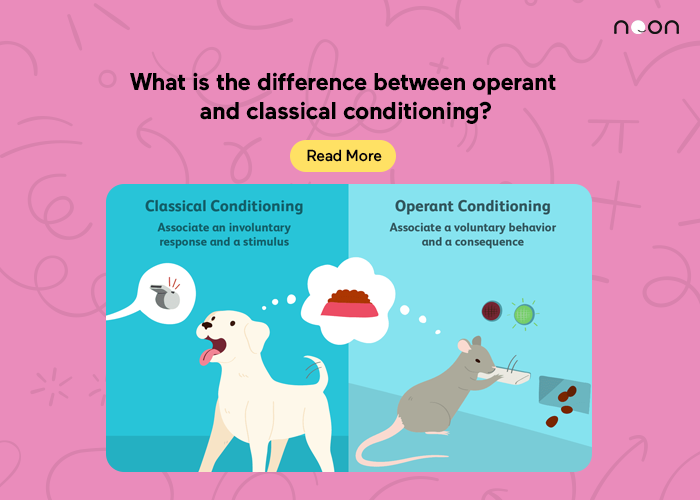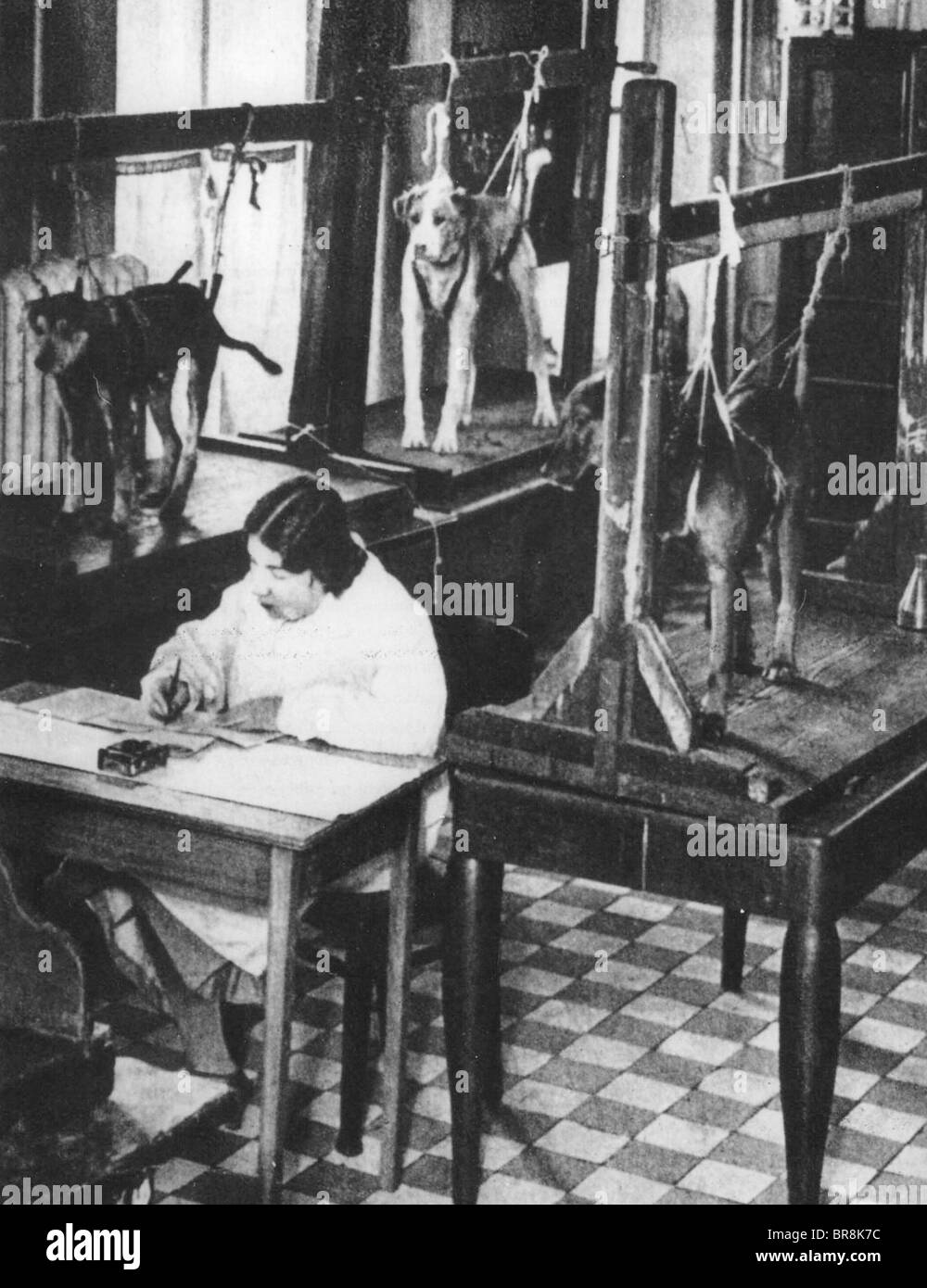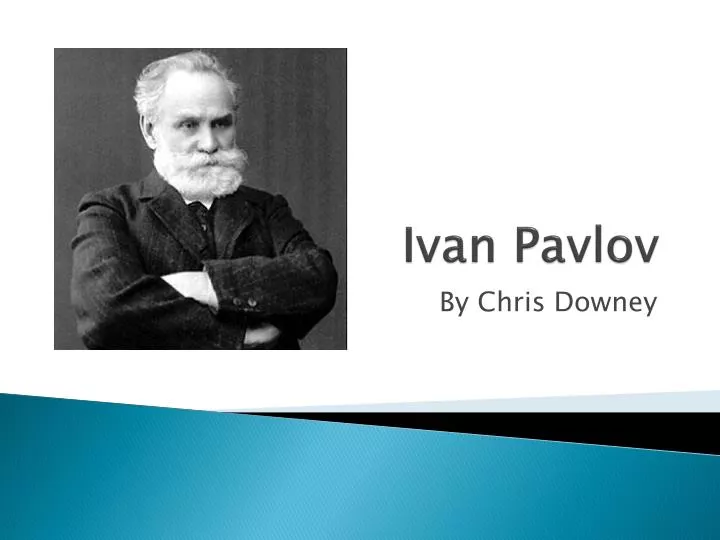Ivan Pavlov: B) B.F. Skinner: C) John B. Watson: D) Edward Tolman: 2: Ivan Pavlov used the term unconditioned to refer to _____. A) a stimulus or event that increases the likelihood that behavior will be repeated: B) … Each of the following statements is true EXCEPT _____. A) social learning involves how people make decisions and act upon the
Unconditioned Response Definition, Origin & Examples – Video & Lesson Transcript | Study.com
Social Science. Psychology. Which of the following statements about Ivan Pavlov is true? O He is known for establishing the principles of classical conditioning. He is considered the founder of behaviorism. He is most famous for his work in observational learning, with the Bobo doll experiment displaying how children can learn to model aggression.

Source Image: slideplayer.com
Download Image
Ivan Pavlov See all media Category: Science & Tech In full: Ivan Petrovich Pavlov Born: September 14 [September 26, New Style], 1849, Ryazan, Russia Died: February 27, 1936, Leningrad [now St. Petersburg] (aged 86) Awards And Honors: Copley Medal (1915) Nobel Prize (1904) Notable Works: “Lectures on the Work of the Digestive Glands”

Source Image: learnatnoon.com
Download Image
2,844 Pavlov Images, Stock Photos, 3D objects, & Vectors | Shutterstock Ivan Petrovich Pavlov ( Russian: Иван Петрович Павлов, IPA: [ɪˈvan pʲɪˈtrovʲɪtɕ ˈpavləf] ⓘ; 26 September [ O.S. 14 September] 1849 – 27 February 1936) [2] was a Russian and Soviet experimental neurologist and physiologist known for his discovery of classical conditioning through his experiments with dogs.

Source Image: alamy.com
Download Image
Which Of The Following Statements About Ivan Pavlov Is True
Ivan Petrovich Pavlov ( Russian: Иван Петрович Павлов, IPA: [ɪˈvan pʲɪˈtrovʲɪtɕ ˈpavləf] ⓘ; 26 September [ O.S. 14 September] 1849 – 27 February 1936) [2] was a Russian and Soviet experimental neurologist and physiologist known for his discovery of classical conditioning through his experiments with dogs. As we discussed briefly in the previous section, classical conditioning is a process by which we learn to associate stimuli and, consequently, to anticipate events. Figure 6.3 Ivan Pavlov’s research on the digestive system of dogs unexpectedly led to his discovery of the learning process now known as classical conditioning.
IVAN PAVLOV (1849-1936) Dogs and research worker at the St Petersburg laboratory Stock Photo – Alamy
Which of the following statements about Ivan Pavlov is NOT true? He partnered with Albert Bandura on studies of social learning. In the early 1900s, _____ argued that the classical conditioning lessons learned from Ivan Pavlov’s experiments with dogs should apply to humans also. Ivan Pavlov Photos and Images & Pictures | Shutterstock

Source Image: shutterstock.com
Download Image
Classical Conditioning — Ivan Pavlov | by Lianna Doley | Interactive Designer’s Cookbook | Medium Which of the following statements about Ivan Pavlov is NOT true? He partnered with Albert Bandura on studies of social learning. In the early 1900s, _____ argued that the classical conditioning lessons learned from Ivan Pavlov’s experiments with dogs should apply to humans also.

Source Image: medium.com
Download Image
Unconditioned Response Definition, Origin & Examples – Video & Lesson Transcript | Study.com Ivan Pavlov: B) B.F. Skinner: C) John B. Watson: D) Edward Tolman: 2: Ivan Pavlov used the term unconditioned to refer to _____. A) a stimulus or event that increases the likelihood that behavior will be repeated: B) … Each of the following statements is true EXCEPT _____. A) social learning involves how people make decisions and act upon the

Source Image: study.com
Download Image
2,844 Pavlov Images, Stock Photos, 3D objects, & Vectors | Shutterstock Ivan Pavlov See all media Category: Science & Tech In full: Ivan Petrovich Pavlov Born: September 14 [September 26, New Style], 1849, Ryazan, Russia Died: February 27, 1936, Leningrad [now St. Petersburg] (aged 86) Awards And Honors: Copley Medal (1915) Nobel Prize (1904) Notable Works: “Lectures on the Work of the Digestive Glands”

Source Image: shutterstock.com
Download Image
What is Pavlov’s theory? – Quora Jan 10, 2024Pavlov’s Dogs. The most famous example of classical conditioning was Ivan Pavlov’s experiment with dogs, who salivated in response to a bell tone. Pavlov showed that when a bell was sounded each time the dog was fed, the dog learned to associate the sound with the presentation of the food.
Source Image: quora.com
Download Image
PPT – Ivan Pavlov PowerPoint Presentation, free download – ID:2578167 Ivan Petrovich Pavlov ( Russian: Иван Петрович Павлов, IPA: [ɪˈvan pʲɪˈtrovʲɪtɕ ˈpavləf] ⓘ; 26 September [ O.S. 14 September] 1849 – 27 February 1936) [2] was a Russian and Soviet experimental neurologist and physiologist known for his discovery of classical conditioning through his experiments with dogs.

Source Image: slideserve.com
Download Image
Sandwalk: Nobel Laureate: Ivan Pavlov As we discussed briefly in the previous section, classical conditioning is a process by which we learn to associate stimuli and, consequently, to anticipate events. Figure 6.3 Ivan Pavlov’s research on the digestive system of dogs unexpectedly led to his discovery of the learning process now known as classical conditioning.

Source Image: sandwalk.blogspot.com
Download Image
Classical Conditioning — Ivan Pavlov | by Lianna Doley | Interactive Designer’s Cookbook | Medium
Sandwalk: Nobel Laureate: Ivan Pavlov Social Science. Psychology. Which of the following statements about Ivan Pavlov is true? O He is known for establishing the principles of classical conditioning. He is considered the founder of behaviorism. He is most famous for his work in observational learning, with the Bobo doll experiment displaying how children can learn to model aggression.
2,844 Pavlov Images, Stock Photos, 3D objects, & Vectors | Shutterstock PPT – Ivan Pavlov PowerPoint Presentation, free download – ID:2578167 Jan 10, 2024Pavlov’s Dogs. The most famous example of classical conditioning was Ivan Pavlov’s experiment with dogs, who salivated in response to a bell tone. Pavlov showed that when a bell was sounded each time the dog was fed, the dog learned to associate the sound with the presentation of the food.